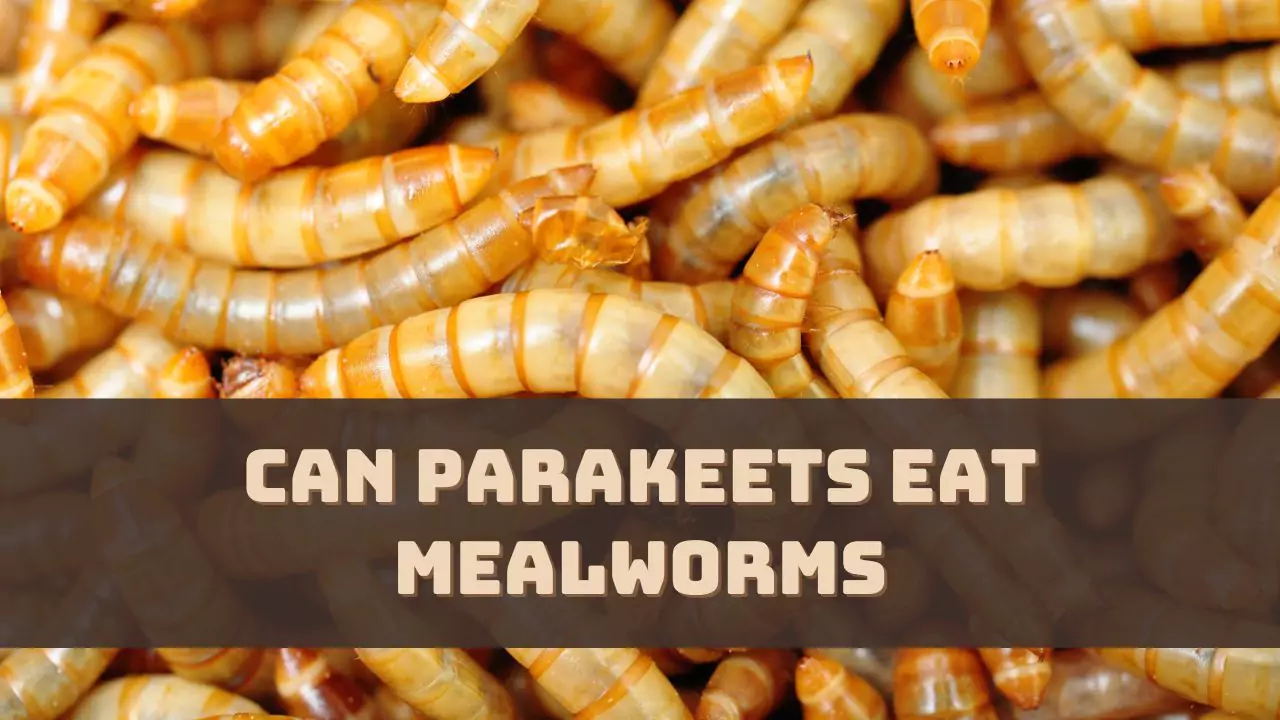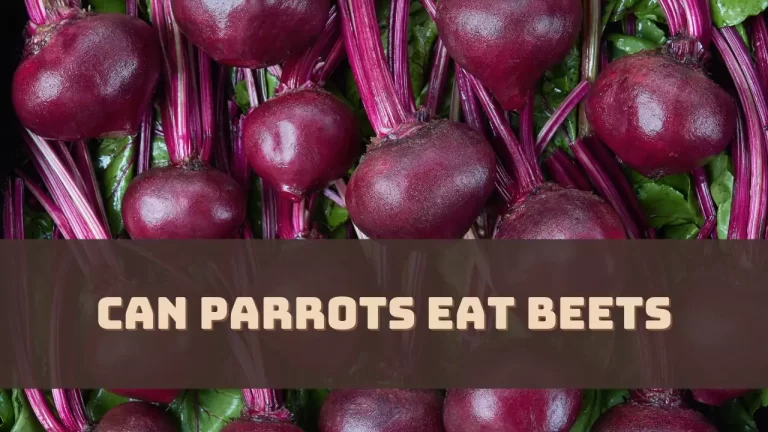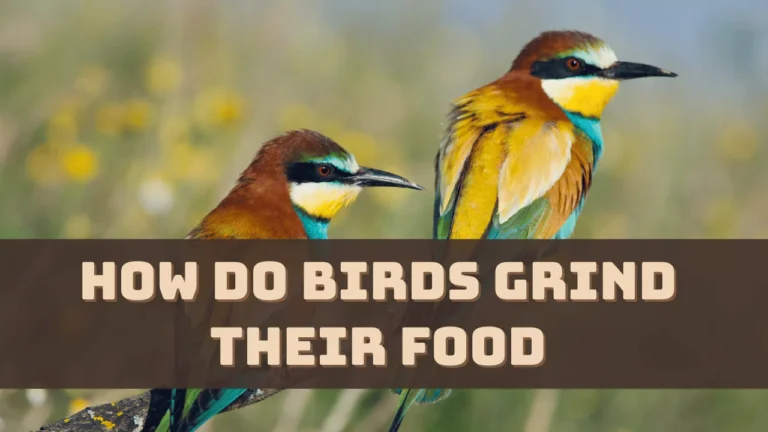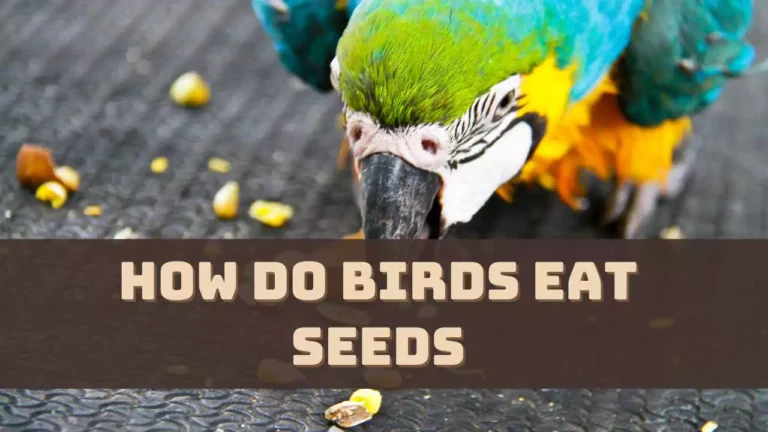Yes, Parakeets can safely eat mealworms as a protein supplement, though they’re not the most nutritious option. Mealworms are rich in protein but lack other essential nutrients.
Even parakeets, which primarily consume plant matter, benefit from occasional insect protein intake. Both live and dried mealworms are suitable for parakeets, with dried mealworms being a convenient option for feeding.
So, let’s get you covered and clear all the confusion related to a parakeet eating mealworms.
What are Mealworms?
Mealworms have monounsaturated fats and Omega 3 fatty acids which help in the maintenance of a healthy brain function in parakeets. They also act as superfoods and their high-quality amino acid fulfills the requirement for essential amino acids in birds which they are not capable of producing. Mealworms are considered to be a natural source of fat, protein, and fiber, which makes them a great feed for birds throughout the year.
Is it Safe for a Parakeet to Eat Mealworm?
Yes, a parakeet can eat mealworms as these are protein-packed food. They mostly enjoy fruits, vegetables, and nuts, and mealworms are rare, but they are not harmful. However, if you are planning to add mealworm to the diet of a parakeet, then you need to slowly introduce a new food to them and also consult with the veterinarian. Mealworms are not toxic, but they should be an occasional treat for the parakeets.
Why Feeding Mealworms Regularly Can Be Risky for the Parakeet?
Feeding mealworms regularly to the parakeet can become risky as you might be taking them from a garden that contains parasites, and bacteria, leading to chances of illness, infection, and finally death of the bird. If you are feeding too many mealworms to the parakeet, it increases the moisture content of the body, causing an imbalance, which later on leads to diarrhea. Also, mealworms are high in fat content which can result in obesity among the parakeets.
How Should You Feed Mealworms to the Parakeets?
You must limit the amount of mealworms fed to the parakeets, as low as possible. Depending upon the environment, breeding, feeding pattern, and taste of the parakeet you have to serve them in moderation. Along with keeping the quantity minimum, you have to monitor the quality of the mealworms, so that even small portions do not harm their health. You must buy the mealworms only from a reliable store that supplies a balanced quantity without any side effects.
Can You Provide Dried Mealworms to Parakeet?
Yes, you can provide dried mealworms to the parakeet which acts as the supplementary diet, but never make them a staple food. Dried mealworms are created by drying out, heating or freezing the mealworms. They might not be as beneficial as a live worm, but easy to store, easy to feed, and do not create any harm to the health of the parakeet. You can mix this dried source of protein and high nutritional value while you are feeding the parakeet.
In What Quantity Mealworms Should Be Fed to Birds?
Parakeets generally prefer to eat grains, so when you are giving mealworms it should be in minimum amount. Never give mealworms to the budgies, during the breeding season and some birds might be picky and even refuse to eat the mealworms.
Where Can You Get Mealworms?
You can either breed your own mealworms or buy them from a good quality store. If the change in diet is causing problems for the parakeet then talk to the avian vet immediately.
Why Protein is Necessary for Parakeets?
Proteins help to build feathers, bones, and muscles and also support the production of enzymes and hormones of the budgies. Mealworms can be an excellent source of protein, but other food items, such as plants are equally important. However, anything can be poisonous for the Parakeets and the same goes for protein and mealworms.
Can You Provide Protein During Breeding Seasons?
Yes, birds require a little more protein during the breeding season when compared to non-breeding. However, you have to be very careful to not feed too much protein to them as it can cause dehydration, kidney failure, and other non-recovery symptoms in the Parakeets.
Apart from Mealworm, What are the Other Sources of Protein for Parakeets?
The other sources of protein for parakeets are seeds, pellets, fruits, and vegetables which help to stay strong. You can also add a small amount of celery, oranges, apples, peas, broccoli, sweet pepper, Rosemary, chia seeds, and cucumber.
What are the Other Important Nutrients Required by Parakeet?
Parakeets also require a lot of vitamins, such as Vitamin A, Vitamin B, Vitamin B3, and Vitamin E, which are required to fight different parasites, and illnesses, digest the food, help in energy metabolism, boost calcium, and overall health improvement. Vitamins also help to boost immunity and fight against stress in Parakeets. They need a perfect mix of 5% fruit, 20% vegetables, 10% seed, and the right amount of snacks and insects, along with enough water to stay hydrated.
Which Insects Do Parakeets Enjoy Eating?
Parakeets enjoy eating cricket, worms, ants, flying insects, small grasshoppers, beetles, spiders, caterpillars, and moths.
Can Parakeets Eat Wax Worms?
Yes, parakeets can eat wax worms as they are easy to digest, have high water content, and are ideal for baby birds and fledgling birds.
Can You Feed Mealworms to Baby Birds?
Yes, baby birds can be given insects and mealworms as emergency food, as they are great sources of protein. Alternatively, you can also get pre-made emergency baby bird food from local stores which are low volume and have high calorific value.




